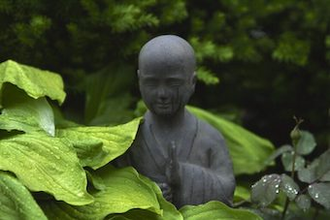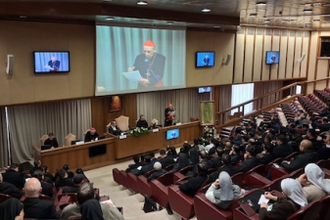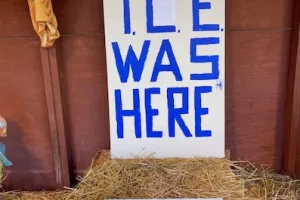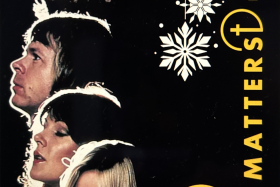Rediscovering a sense of the sacred during lockdown

During the first lockdown, like so many other people, I became aware of what an enormous privilege it was to have a garden. Knowing that so many people were confined to homes that not only lacked access to any outside space, but might also be overcrowded and unhealthy made me value our suburban back garden in a way I had never done before.
Not having been a keen or knowledgeable gardener, or indeed any kind of gardener, I decided to try growing something edible. Green bean and courgette seeds were planted in old egg boxes, and I ordered some tiny tomato plants online. Nurturing these plants really made an impact. I became far more attuned to weather conditions, and to appreciate how dependent we are on the natural world for our very survival. I had always known these thing in theory of course, but through the simple act of growing and eating a few vegetables, that knowledge became more visceral. And the results were not only edible, but delicious. I would urge anyone who can to try growing something, even if it's just one tomato plant in a tub.
This new-found connection to the natural world made me think a lot about a book I had reviewed almost a decade earlier - Out of this Earth: East India Adivasis and the Aluminium Cartel, by Felix Padel and Samarendra Das. The book is a weighty tome, packed full of rigorous research into the horribly destructive, greedy and exploitative impact of the aluminium industry on the environment and tribal peoples of Odisha, India. The corruption and ruthlessness of multinational corporations, banks and politicians is laid bare, and placed in the context of colonialism both modern and historic. It made me angry - but one element of the book which made a lasting and more positive impression was the relationship of the tribal people, the Adivasis, to the land they had inhabited for thousands of years.
The Adivasis worship the mountains as gods. As Arundhati Roy writes in the foreword, "these bauxite mountains have been home to the Dongria Kond tribe long before there was a country called India…The hills watched over the Kond. The Kond watched over the hills and worshipped them as living deities. Now these hills have been sold for the bauxite they contain. For the Kond it's as though God has been sold. They ask how much god would go for if the god were Ram or Allah or Jesus Christ?"
At the time when I reviewed the book, I respected the beliefs of the Adivasi peoples, as just that - an alternative set of sincerely held beliefs. But I must confess that there may have been an element of condescension in that respect, a subconscious feeling that, with our scientific understanding, advanced technology, and greater knowledge of the wider world, we in the West knew more, and perhaps knew better, than the people who worshipped mountains.
And yet, as Padel and Das write: " Mountains as a religion might be looked on by 'civilised people' as the ultimate in superstition. Yet the idea balances the spiritual with the material, and contains an intrinsic intelligence. The land's fertility comes from the mountains, which store rainwater and release it gradually, mixed with mineral nutrients. Treating mountains as gods is common sense, a prescription for long-term sustainability."
We may look at people who worship mountains and feel that, compared to them, we have made great progress. But with that ostensible progress we have lost or discarded a sense of the sacred in the natural world. And that sense of the sacred might be exactly what we need now, to save us from our own, deeply damaging culture. As Padel and Das say: "As a religion, 'money is God' threatens us all with destruction."
A year after the first lockdown, a United Nations report confirmed that indigenous people are by far the best defenders of their environments and all the biodiversity they contain. The authors of the report emphasised that "this is an empirical finding, based on data, not a naïve ideological or romantic notion". Here too, a spiritual dimension was recognised and affirmed. "For indigenous people it's a spiritual space. It provides food and medicine. It's a place where you build relationships, not only among people, but with the river, the water, with different species".
'Life is sacred' is a commonly held belief amongst many religious people. Sadly, particularly in the West, this belief has tended not to extend to the life of the ecosystems and biodiversity on which we all depend for our existence. But a sense of the sacred in everything, including the natural world, should no longer be seen as primitive, or quaint- it's actually now, I believe, essential for the survival of our planet.
This sense of the sacred need not be expressed in a conventional, religious way. One definition of sacred is: 'worthy of or regarded with reverence, awe, or respect.' Imagine if the natural world and all the interdependent life it contains was viewed with reverence, awe and respect by everybody. How much wiser would our political and economic decisions be?
During the successive lockdowns, I was also extremely impressed by the altruism of the vast majority of young people - sacrificing, with very little protest or complaint, a significant chunk of time in their own lives to protect those who are more vulnerable than themselves.
And it is those same young people who are now most aware of what is happening to our planet, and of what action is needed to save it. They may not use the word sacred, but their passion to protect the environment and biodiversity show a far more respectful and reverent attitude towards the natural world than that of many older generations.
The title of this Ekklesia series is Pandemic, Humility and Hope: reflection and response. One of the lessons I learned from the pandemic is that older generations need the humility to accept that people who are much younger may have a better grasp of the biggest challenges we face, and we need to be prepared to follow their lead. Also, we need the humility to accept that indigenous people who lack the sophisticated trappings of a 'developed' society may actually hold the key to our planet's survival. In large areas of the world, we need to relinquish land and control back to them. Only with this humility will our hope in a liveable future have a solid foundation.
This article is part of Ekklesia's 'Pandemic Humility and Hope' series, launched to coincide with the third anniversary of the first Covid lockdown on 23 March 2020. See also Everyday Sacrament: Visual Meditations in an Age of Pandemic (review), Scotland After the Virus (review), Beyond the deadening grip of the 'old normal' (article) and 'The pandemic: an issue of life and death'.
© Bernadette Meaden has written about political, religious and social issues for some years, and is strongly influenced by Christian Socialism, liberation theology and the Catholic Worker movement. She is an Ekklesia associate and regular contributor. Her latest book is Illness, Disability and Caring: A Bible study for individuals and groups (DLT, 2020). Her latest articles can be found here. Past columns (up to 2020) are archived here. You can follow Bernadette on Twitter: @BernaMeaden


















